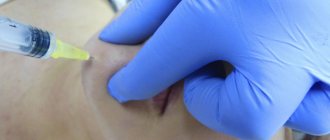What is hyaluronic acid?
Hyaluronic acid exists in all living organisms and is one of the components of tissue. Its main function is to help the body obtain fluid by binding water molecules in tissues, as well as maintaining the skin framework.
With age, the amount of hyaluronic acid in tissues decreases, causing sagging skin and physical aging (for example, the appearance of wrinkles).
Thus, over the age of 45, according to doctors, people have 2 times less hyaluronic acid than in their youth. Thus, replenishment of our natural reserves of hyaluronic acid is often dependent on external influences.
Hyaluronic acid is used to rejuvenate the skin and helps moisturize it. It also helps the skin maintain smoothness and strengthen intercellular connections. Hyaluronic acid plays a major role in the healing of skin wounds.
Benefits of hyaluronic acid:
Hyaluronic acid is widely used in skin care for anti-ageing developments, and can also be used in the treatment of osteoarthritis.
1. softening the skin; 2. moisturizing the skin; 3. rapid healing of wounds; 4. elimination of skin rashes; 5. elimination of wrinkles, especially in the eye area; 6. increased joint mobility; 7. treatment of osteochondrosis.
What is hyaluronic acid?
Hyaluronic acid is gradually becoming a replacement for a substance that the body must synthesize on its own. It is a natural polysaccharide that promotes the full functioning of connective, bone and cartilage tissues. The jelly-like substance that forms the intercellular space, which is what this substance is, is designed to retain moisture. When it is produced in insufficient quantities, the condition of the skin worsens. In this case, it is necessary to replenish the deficiency from the outside, for which hyaluronic acid is used.
Treatment of joints with hyaluronic acid
Since hyaluronate is produced directly in articular cartilage, its deficiency affects joint mobility. Worn out cartilage cannot function fully and osteoarthritis develops.
The use of hyaluronic acid for the treatment of joint pathologies is usually prescribed when other medications have failed. Hyaluronate is first prescribed in capsules or tablets, 100–200 mg per day. In the initial stages of osteoarthritis, taking tablets orally gives a good effect. In later stages, oral forms are less effective and injections are the option.
Hyaluron is injected directly into the joint space under X-ray control. The medicine for injection into the joint comes in the form of a gel-like liquid and can be administered in different ways:
- Injection once a week for 4 – 8 weeks in one joint. Short-acting solutions are used for this purpose. This method is good because the hyaluronic acid enters the joint gradually, constantly being renewed.
- 2 injections with an interval of 10 days. For the first injection, a medicine with an anti-inflammatory component is used, after 10 days a concentrated drug of prolonged action is administered. The therapeutic effect with this method of treatment reaches from 6 months to a year.
When diagnosing osteoarthritis, pay attention to hyaluronate tablets; if treatment is started in a timely manner, injections will not be needed. Our range can be viewed here -.
Varieties
Types of hyaluronic acid are divided according to several criteria, including molecular weight, filler structure, mechanism of action and method of production. But this classification is more suitable for products used in cosmetology. If we talk about oral medications, they can be classified as accumulative agents, some of which not only replenish the deficiency, but are capable of activating the process of producing one’s own collagen. Depending on how the active substance is extracted, the component of hyaluronic acid tablets can be classified as an element of animal origin or a biosynthesis product. In the first case, the proteins and peptides contained in the drug can lead to an allergic reaction.
What is the difference between collagen and hyaluronic acid
Collagen
Collagen is a special connective tissue protein that is present in skin, bone, cartilage, ligaments and tendons.
Dermal collagen is produced by fibroblasts in the dermis (the middle layer of the skin), and its fibers form the skeleton of the skin. It is collagen that ensures the elasticity, firmness and strength of the skin. With age, the processes of collagen destruction begin to prevail over the synthesis of this substance in the body. With insufficient collagen content, the skin becomes flabby, thin, pigment spots appear, ptosis (drooping) of tissues begins, protein loses its ability to retain water molecules, thereby increasing the dryness of the skin.
Functions of collagen for skin
- Supporting - forms the connective tissue skeleton for the skin.
- Protective - provides strength and density of fabrics to protect against external influences.
- In combination with elastin, it imparts plasticity to tissues - the ability of fibrils (fibers) to return to their original place after stretching.
- Restorative - participates in cell regeneration.
- Prevention of melanomas - blocks the development of cancer cells.
- Stimulates the formation of cell membranes (shells).
The sources of exogenous collagen, depending on the raw material, are the following types:
Animal collagen is obtained from the skin of pigs and cattle. This is the most common and inexpensive type of collagen, often used in the production of cosmetics. A significant disadvantage is the high likelihood of developing allergic reactions when using creams based on animal collagen.
Plant collagen is made from wheat and seaweed. This protein penetrates the skin well and is not allergenic. But the production technology is complex and expensive. In addition, vegetable protein, in fact, is not collagen, since real collagen can only be of animal origin.
Marine collagen is produced from fish skin. Fish collagen molecules are similar to human collagen molecules, so they easily penetrate into the deep layers of the skin. Once under the skin, fish protein breaks down into individual amino acids, which are used to renew cells and moisturize the epidermis. Unfortunately, collagen of marine origin in cosmetics can cause a severe allergic reaction.
Hyaluronic acid
According to its biochemical properties, hyaluronic acid belongs to polysaccharides, which are found in various biological structures and body fluids. The bulk of hyaluronic acid is concentrated in the middle layer of the skin - the dermis. It is located between collagen and elastin fibers, as well as in the cells of the stratum corneum (surface) of the epidermis.
Hyaluronic acid is produced in the skin by special cells - fibroblasts, which also synthesize collagen and elastin.
Hyaluronic acid for the skin is a kind of water reservoir, since it is able to attract and retain water molecules, thereby strengthening the skin frame and increasing its elasticity. It is involved in the process of proliferation (tissue growth due to cell division), promotes the transport of oxygen, blood cells (lymphocytes), as well as nutrients to the site of inflammation and the site of tissue damage.
On the surface of the epidermis, hyaluronic acid, together with sebum, creates a water-lipid mantle that prevents water evaporation and protects the skin from aggressive environmental factors.
For active synthesis of collagen and elastin in the skin matrix, a moisturized environment is required, which is created by hyaluronic acid. With its deficiency, the production of these proteins slows down.
A healthy level of skin hydration ensures a higher rate of tissue regeneration. The skin becomes noticeably younger: wrinkles are smoothed out, the face becomes fresh and acquires an even tone.
Factors that interfere with the production of hyaluronic acid
- Negative effects of ultraviolet radiation if the skin is not protected with special creams with SPF filters.
- Insufficient drinking regime.
- Having bad habits: smoking, alcohol.
- Unbalanced diet.
- Incorrect use of cosmetics when caring for facial skin.
Benefits of hyaluronic acid
Hyaluronic acid preparations in tablets allow you to delay the aging of the body, which manifests itself in external signs. With their help, water balance is maintained and the elasticity of the skin is maintained, peeling of the skin and the formation of facial and age wrinkles are prevented.
The benefits of hyaluronic acid also include:
- protection against oxidative stress caused by free radicals;
- oxygen supply to all tissues of the body;
- maintaining metabolic processes;
- cleansing the body of toxins;
- activating the work of fibroblasts in order to increase the production of their own hyaluronic acid.
Speaking about why hyaluronic acid in tablets is needed, it is worth paying attention to its ability to increase the elasticity and firmness of the skin. With their help, sagging skin, the appearance of folds, creases and wrinkles are prevented. Hyaluronic acid also promotes rapid tissue healing, ensuring tissue restoration without the formation of noticeable scars. It is necessary not only for the beauty and youth of the skin, but also for the health of the joints. With its help, the mobility of the articular elements is ensured. Hyaluronic acid, which is one of the components of synovial fluid, helps cope with joint pain and discomfort during movement.
Ceramides. What it is?
Ceramides are natural components of the skin; they are the basis of young and healthy skin. As we age, the skin begins to lose ceramides, making it more vulnerable to aging. Ceramides support the renewal of the natural protective layer and form an effective barrier against moisture loss.
In addition to its protective role as a lipid barrier, ceramides have other important properties. They normalize the natural process of skin renewal, promote smoother, softer skin on the face and body.
Benefits of ceramides:
1. Eliminates age-related changes and wrinkles. 2. Rejuvenates, gives a healthy glow, refreshes tired skin. 3. Normalizes skin renewal processes. 4. Strengthens the natural barrier of dry and aging skin, protects against ultraviolet radiation. 5. Reduces the appearance of age spots.
Benefits of using hyaluronic acid tablets
The use of hyaluronic acid in tablets can bring greater benefits than cosmetic products. Such drugs help rejuvenate and improve the health of the body as a whole. They provide nutrition and hydration to the skin, affecting even its inner layers, and also improve the condition of connective tissue - joints and bones. Hyaluronic acid in tablets has a positive effect on eye health and also helps strengthen hair and nails. Among the advantages of using hyaluronic acid in this form of release is ease of administration. It can be used at any time without any preparation, whereas many cosmetic procedures require certain conditions and can be painful. The use of tablets instead of injections is suitable for those who are afraid of injury to the skin. Their use is easily combined with meals and does not cause discomfort.
Serums and creams based on collagen and hyaluronic acid
With the help of anti-aging creams and serums based on collagen and hyaluronic acid, the following problems are solved:
- Correction of facial oval.
- Increasing skin elasticity and firmness.
- Skin moisturizing.
- Smoothing wrinkles.
- Activation of metabolic processes.
- Skin tightening.
- Alignment of skin relief.
Serum is the first step in daily moisturizing and skin care. It precedes the use of a thick cream and serves as a catalyst for the active components of the collagen cream. Due to its gel consistency, it is well absorbed, smoothes out unevenness, and makes the skin soft.
Collagen creams compensate for the lack of natural collagen. They slow down the appearance of wrinkles, nourish, moisturize, and have a rejuvenating effect. In addition to collagen, plant extracts (almond, iris, baobab), as well as gold particles or black caviar extracts are added to the composition of such creams.
Collagen creams provide deep hydration, restore skin structure, smooth out wrinkles, and improve blood circulation. But the most important effect is that collagen retains moisture in the deep layers of the dermis.
Contraindications and side effects
Before taking hyaluronic acid, you need to carefully study the contraindications. You should stop using the drug if you have an individual intolerance to the components, as well as with high blood clotting. It should not be taken by women who are pregnant or breastfeeding. Hyaluronic acid in tablets can cause side effects, which most often resemble allergic symptoms. Sometimes redness of the skin or swelling may occur.











